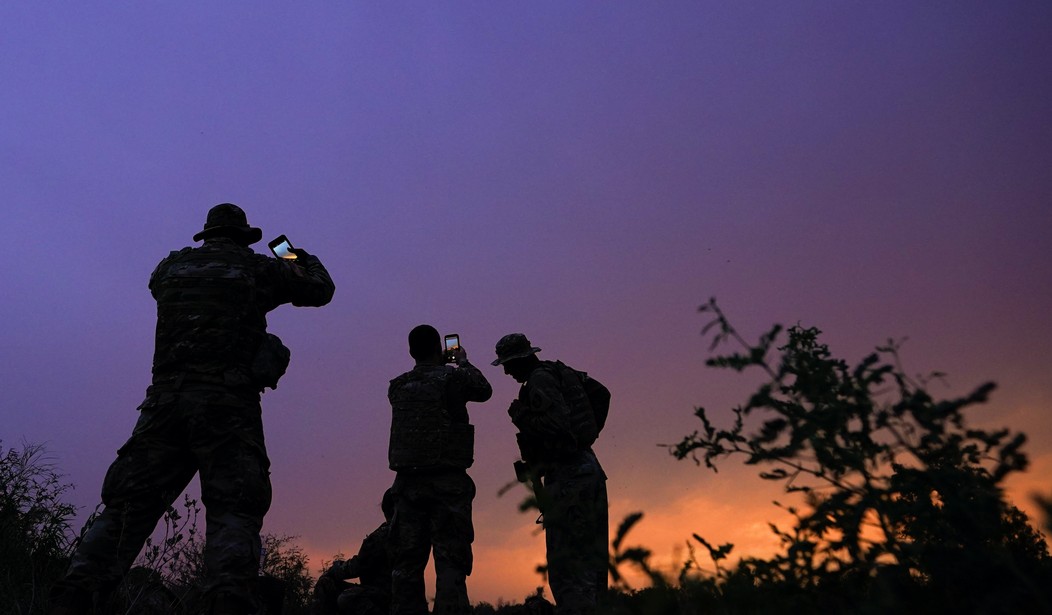U.S. and Mexico officials met Monday to kick off the Se Busca initiative, a joint effort aimed at capturing transnational criminals. This is the second phase of the initiative. Residents of Mexico and the United States are being encouraged to give authorities any information they may have on the whereabouts of transnational criminal organization leaders.
This is good news for both countries, especially for those concerned about border security during the Biden border crisis. The crisis on the southern border has drug cartels and human traffickers thriving, making record financial profits. The confusion and chaos during the flood of illegal migrants allow nefarious bad guys to infiltrate at the border and cross the border. A Ten Most Wanted list has been made targeting ten individuals accused of serious crimes. The initiative is being launched in the El Paso and New Mexico border regions.
The crimes of these individuals include human smuggling and murder. The initiative is an effort by both the U.S. and Mexico to improve border security. Collaboration between countries is essential for success. The El Paso Sector Border Patrol Chief, Chihuahua’s Governor, Ciudad Juarez’s Mayor, and other dignitaries were together Monday in El Paso to make the announcement. Public confidence is crucial to gathering information.
The “Se Busca Información” initiative is designed to encourage the public on both sides of the border, to confidentially report suspicious activity and information regarding the targets to law enforcement via a 1-800-635-2509 or via WhatsApp messenger.
This initiative identifies wanted individuals that are placed on posters, flyers, and billboards. This signage is situated on the U.S. and Mexico side of the border for public viewing. In Mexico, they are mainly displayed on bulletins and billboards along city streets and on posters in convenience stores. In the United States, posters will be displayed at U.S. Border Patrol stations, immigration checkpoints, and international ports of entry in the El Paso and New Mexico border regions.
The Se Busca initiative combines elements proven to in the American crime prevention campaigns – Neighborhood Watch, Crime Stoppers, and the FBI’s 10 Most Wanted – but with an international twist. Even if the call comes in from Mexico, U.S. law enforcement personnel will take down the information, analyze it, and share it with relevant Mexican partners. Two other phone numbers were given out. The numbers to call are 800-635-2509 and 915-314-8194.
The first phase of this initiative was activated in 2019. It led to the capture of leaders in three gangs. The gangs were all drug gangs – the Mexicles, Barrio Azteca, and La Linea. It also strengthened cooperation and trust between top law enforcement officials on both sides of the southern border. El Paso Sector Border Patrol Chief Gloria Chavez said, “This (program) is a true investment for both sides. The relationship is very strong because of our interest in safer communities not only in the United States but also in Mexico.” Nine out of ten wanted by Mexican officials are involved in drug trafficking and participating in murder-for-hire activities. One criminal is wanted by U.S. Border Patrol for “running one of the largest and most ruthless migrant smuggling operations on the border.”
The unnamed smuggling kingpin provides ladders for migrants to scale the border wall and sends them through mountain and desert trails with “guides” who will run back to Mexico at the first sign of trouble or abandon men, women, and children who fall behind during the trek. Other times, the migrants will be made to carry drugs in their backpacks.
“He (is responsible) for a lot of illegal activity with the smuggling and the transportation of migrants between the ports of entry in very high-risk regions,” Chavez said. “Many times, the migrants take risks because they are encouraged to climb the border wall and often get stuck at the top and not able to get down.”
Depending on how tall the section of wall is or how strong the migrant happens to be, falls occur that result in broken legs, sprained ankles, and other injuries.
“We have done over 200 rescues (this fiscal year),” Chavez said. “He is a very high priority to the Border Patrol because we want to stop him from placing migrants at risk and carrying out illegal activities in this border region.”
Open border advocates like to pretend that those illegally crossing the border are just poor people looking for work. The problem is that human traffickers and drug cartels prey on vulnerable people. They take money for their services, for bringing them to the southern border, and just dump them there. Migrants cross the border and literally just wait for law enforcement to come and pick them up. Contrary to Team Biden, this is not a more humanitarian approach to border security and illegal immigration than policies put into place by the previous administration.
American law enforcement officials have confidence in law enforcement partners in the state of Chihuahua. Chihuahua Attorney General Cesar Augusto Peniche points to securing arrest warrants for 25 or 26 violent crime organization leaders from a list of 30 and 40 principal generators of violence in Chihuahua. “Now we identify who the generators of violence are; we have issued many arrest warrants and we are sharing information with our federal government (in Mexico City).” They remain in communication with U.S. federal agents stationed at the American consulates and the embassy. All of this concerted joint effort is to better track organized crime leaders.
The attorney general added that one of the biggest successes of “Se Busca Información” was the capture of Jose Dolores Villegas Soto, a.k.a. “The Iraqi,” arrested in May 2020 after a telephone tip led authorities to the neighboring state of Coahuila.
Peniche said Villegas remains in prison despite violent attacks on police last year by members of the Aztecas gang in an effort to get him released.
Let’s hope this joint initiative holds up and begins to address the violent criminal element freely operating on the southern border. Communities on either side of the border cannot feel safe until the drug cartels and gangs, along with the smugglers, are brought to justice.








Join the conversation as a VIP Member